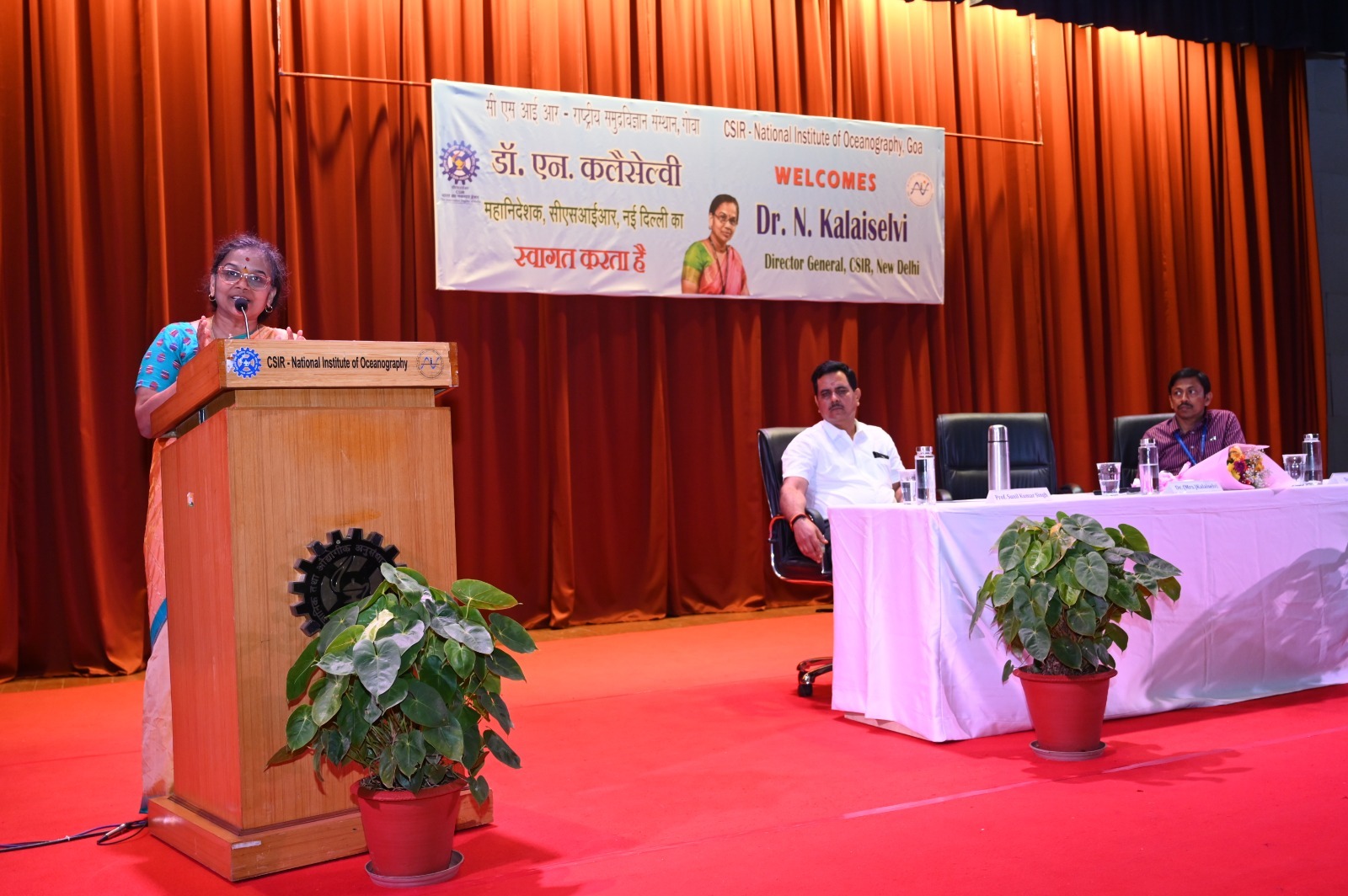Panaji: In a press conference held at CSIR-National Institute of Oceanography (NIO), Dona Paula, Panaji, Dr. N Kalaiselvi, the Director General of the Council of Scientific and Industrial Research (CSIR), reiterated the organization’s commitment to make India ‘Atmanirbhar’ by developing indigenous technologies. The event focused on the ‘Role of CSIR in building an Atmanirbhar Bharat.’
Dr. Kalaiselvi emphasized that CSIR, with its 37 laboratories nationwide, is actively engaged in research and development across various sectors to promote ‘Atmanirbharta’ and ensure India’s self-sustainability in the coming years. She highlighted that India, blessed with abundant natural resources, possesses the raw materials necessary to achieve this mission.
“As the world advances unpredictably, it is crucial for our country to prepare for current and future scientific requirements. CSIR has prioritized indigenization in all its research, aiming to make India self-reliant,” stated Dr. Kalaiselvi, who is also the Secretary of the Department of Scientific and Industrial Research.
One of CSIR’s notable successes highlighted was the ‘Purple Revolution’ in Jammu & Kashmir, featuring lavender cultivation. CSIR’s interventions led to remarkable growth, with lavender products reaching the market and creating several agri-start-ups in the region. Additionally, CSIR developed India’s first women-friendly electric tractor, PRIMA ET11, showcasing their commitment to agro-mechanical technology.
Dr. Kalaiselvi emphasized CSIR’s unique approach to supporting startups, stating, “CSIR handholds the startups and walks along with them throughout their journey. More than 300 agri-startups in Jammu and Kashmir are being supported by CSIR as a remote mission.”
The Aroma Mission, another initiative by CSIR, turned India from an importer to an exporter of lemongrass oil by 2023, with an impressive export of 600 million tons. The director also highlighted the success of the hydrogen hydrate manufacturing facility, dedicated to the nation by Prime Minister Narendra Modi in 2022, reaching a 10,000 tonnes per annum capacity by 2023.
In a significant stride towards sustainable aviation, Dr. Kalaiselvi spoke about the indigenously developed Sustainable Aviation Fuel (SAF) technology. Two aircraft that participated in the Republic Day flypast showcased this technology, and an agreement with Airbus signals a promising future for its adoption in the aviation industry.
Dr. Kalaiselvi concluded by expressing optimism about India’s scientific capabilities and the role CSIR plays in driving innovation and self-reliance in various sectors. The commitment to indigenization and support for startups reflects CSIR’s dedication to realizing the vision of ‘Atmanirbhar Bharat.’





